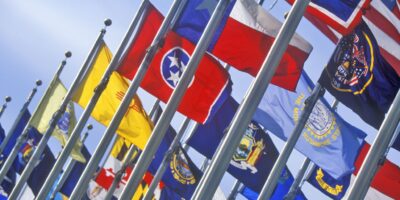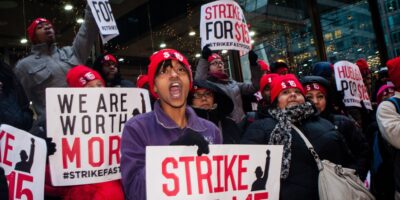The Creation of a Surveillance-and-Snitching Society

Shelves were stripped bare as governments responded to the coronavirus epidemic by shutting down schools and businesses. More accurately, the shelves were stripped because price-gouging laws made it impossible for prices to rise quickly to reflect a new and very uncertain reality.
These laws are like a make-work program for economists because we get to write about their unintended consequences and discuss a nearly-endless fresh supply of examples. There is, I think, a more pernicious thing about price gouging laws. They encourage people to rat one another out for what are, fundamentally, “capitalist acts between consenting adults,” to borrow a phrase from the philosopher Robert Nozick. State Attorneys General have set up hotlines, special email accounts, and even Twitter feeds to make it easier for people to “report” price gouging—or, in other words, to snitch on people asking high prices for things like hand sanitizer.
These hotlines and such reinforce the idea that one has been, in being “gouged,” not merely inconvenienced relative to what one expects the world to be but wronged. And importantly, prosecuting price gouging requires scarce resources, scarce time and attention, and the hotlines and other reporting mechanisms erode the fabric of society while giving the snitches a false sense of virtue. In the long run, the prospect of moral sanction increases the risks prospective business owners face and, ultimately, keeps them out of industries (like running gas stations) they might otherwise enter. We all pay for sanctimony and snitching.
Price gouging laws are usually triggered amidst much fanfare about how disasters are times when we are supposed to “come together,” not “take advantage of one another” in a time of need. And indeed, a lot of firms see incurring big costs during storms by providing free or cheap goods and services—Budweiser, for example, usually sends cans of potable water. We can, to a certain degree, rely on the kindness of strangers but if the goal is to get precious goods to where they are needed most we would also do well to appeal to their self-interest. And who, honestly, is really taking care of storm victims: the manager at a small store tripling the price of hand sanitizer—and keep in mind, his supply line has probably been disrupted, the finger-wagging but no-hand-sanitizer-supplying busybody tweeting the Attorney General to report “price gouging,” or the observer shaking his head at the “selfishness” of the gouging store owner?
I think the answer is pretty obvious. If we kept our ethical wits about us, we would be tolerating or even celebrating the gouger, not persecuting him. What a gas station owner chooses to do with gas he owns is, quite literally, none of your business. Nor is it any of mine.
Laws against price gouging turn unto us into societies of suspicious, moralizing busybodies. Importantly, the snooping and snitching and tut-tutting don’t solve the important problem at hand, which is that at the price prevailing before the disaster, people in a pandemic want more hand sanitizer, milk, toilet paper, and so on, just as after a hurricane they want a lot more flashlights, plywood, bottled water, gasoline, and generators than other people are willing to supply.
To be absolutely clear, the situation itself is not something any decent person would wish on anyone else. Adam Smith, incidentally, is clear about this in the first few pages of his Theory of Moral Sentiments in which he discusses how we enter into sympathy with others and often have physical reactions to their suffering. Only psychopaths get joy from others’ pain, and I hope we would all agree that if we could have stopped others’ suffering we would do so. But that’s not the problem confronting us once a disaster has happened. At this point, we need some way to alleviate others’ suffering.
We muddy the message when we don’t let prices change, and we tear the ties that bind us together when we create a snitching society.











